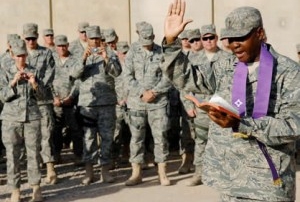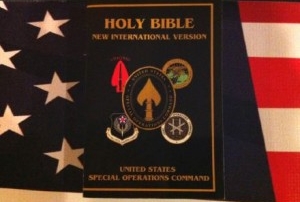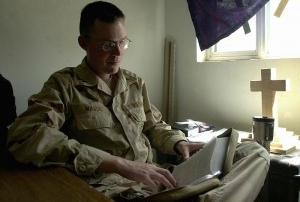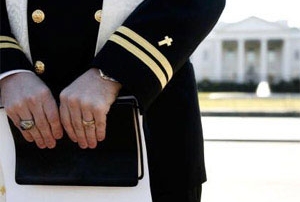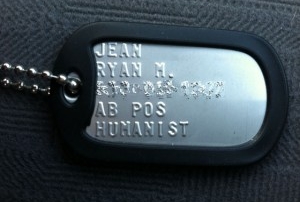Overview
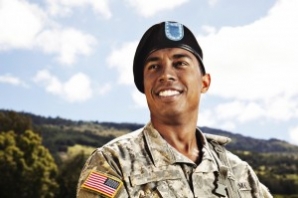 The military presents a unique situation where the government is intricately involved in daily life for over a million active duty personnel. While providing service members with access to fulfill their own personal beliefs, the government must ensure it displays neutrality toward religion and belief in the military. Nontheists in the armed forces deserve equal access to support and equal respect for their service.
The military presents a unique situation where the government is intricately involved in daily life for over a million active duty personnel. While providing service members with access to fulfill their own personal beliefs, the government must ensure it displays neutrality toward religion and belief in the military. Nontheists in the armed forces deserve equal access to support and equal respect for their service.
More self-identified atheists serve in the military than any other non-Christian denomination.92 The military shows its appreciation for Buddhists, Hindus, Muslims, and Jews through special dietary and uniform accommodations and special chaplain accession policies. Yet even though nontheists serve in larger numbers than any of these groups, they have no recognition or accommodation.
Support for nontheists puts all service members on equal terms and legitimizes the religious facilities, events, and support programs provided for those who prefer religious affiliation.
Religion and Christianity in particular are afforded special privileges within the U.S. military. This is obvious in the 98% Christian chaplaincy, the special accessions for Catholic chaplains, the use of ceremonial prayer, and the inculcation of God (and Christianity) into all aspects of military care programs. Our military should be neutral toward religion and avoid religious preferencing or proselytizing of any kind.
Our Recommendations on Military
SECULAR RECOMMENDATIONS ON DEFINE AND RESTRICT PROSELYTISM
Military culture problematically promotes religious belief. A Department of Defense public affairs officer recently stated that it is acceptable to talk about faith but not to push it on others. However, specific case studies, regulatory requirements, and even basic definition of terms are not publicly available. Congress and military leaders should oppose efforts under the guise of ÔÇÿreligious freedomÔÇÖ or ÔÇÿconscienceÔÇÖ to discriminate or gain special privilege for religion. Proselytism and ubiquitous prayer create a military culture that oppresses nontheists, especially in the absence of [...]
SECULAR RECOMMENDATIONS ON PROHIBIT COMMAND ENDORSEMENT OF RELIGION
Command endorsement of religion is common throughout the military. Unit logos are printed on Bibles, Bibles are placed in government hotels as a matter of policy, unit mottos commonly have religious themes, and prayer is said at most official command activities and every evening on naval vessels. Eliminating command endorsement of religion provides unimpeded opportunity for personal expression of religion and even facilitation and funding opportunities for religious activities, facilities, and events so long as they are not mixed with official command functions. POLICY RECOMMENDATION: Non-social, [...]
SECULAR RECOMMENDATIONS ON CHAPLAIN TRAINING ON THE NON-THEIST PERSPECTIVE
Chaplains currently have training about the diversity of belief systems they will encounter in the military as well as their requirement to serve the wide diversity, from Wiccan to Muslim to Christian Science to Sikh. Chaplains have no such training for the non-theist perspective so they are ill-equipped to provide referrals, provide appropriate resources, or even to be effective in basic counseling services. POLICY RECOMMENDATION: Non-theist-developed training on the non-theist perspective (e.g., atheist philosophy, humanist values, beliefs, history, and practices, and non-theistic grief counseling) must be [...]
SECULAR RECOMMENDATIONS ON PROVIDE FOR HUMANIST CHAPLAINS
While our military is making substantial progress integrating gay, lesbian and female Americans into its ranks, it continues to discriminate against nontheists. The chaplaincy has never had any formal training in non-theistic beliefs and practices. They are thus unqualified to extend their services to nontheists. The chaplaincy is of benefit to military personnel and is one of many ways to serve. The chaplaincy is not solely about theistic religion. They have a varied and complex list of duties, including responsibility for morale support, advice on [...]
SECULAR RECOMMENDATIONS ON RECOGNIZE HUMANIST IDENTITY
One of the very first in-processing activities for all military personnel is to receive their ID tags. Young troops are asked, ÔÇ£What is your religious preference?ÔÇØ There are over 100 different specific, general, and administrative answers to that question, and military personnel enjoy the right to put their beliefs on their ID tags and official records. Humanists are denied even that basic right. They must choose ÔÇ£atheistÔÇØ or ÔÇ£no religious preferenceÔÇØ which are both terms that state what they donÔÇÖt believe, not what they do [...]

